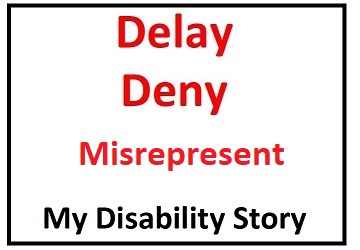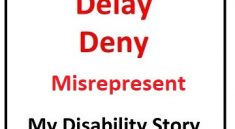Thrivent CEO Rasmussen notified of their fraud, Clarification of contract terms and definitions, Wages Profit Earned Income defined, Free consulting offered
In an email sent to Thrivent’s outside attorney on June 26, 2018 I stated:
“We appear to be at an impasse.
I am an expert on business & business systems. Over 30 years experience, with customers with $ 5 million to over a billion in sales.
I represented 3 companies in Manhattan.
My proposal:
Take this out of the legal/adversarial mode.
Hire me as a consultant to explain what happened and to prevent it from happening again.
They tout the MDRP program as benefiting the members and representing their core Christian values.
What better way to exemplify it than to create a win win situation, heal our wounds & to fix any problems in the system.
I am certain a bible verse applies.”
This was difficult for me to write after what has transpired with the financial, physical and emotional toll on me. However, it is closer to what I believe is a Christian posture.
The offer was rejected.
The following is presented gratis.
On August 10, 2018, Sandy Headington, FLHC, DIA, AIRC, ACS, AIAA Senior Claims Examiner of Thrivent sent a 6 page letter to the NC Insurance Commission.
In the preface to the 2009 claim she wrote:
“Wells noted he was in the process of preparing two properties for sale, but was not able to produce any financial documentation to support that this was work for earned income.
The contract defined Earned Income to mean: salary, wages, commissions, fees; or other remuneration actually earned from any form of employment. When a person is not employed for earned income, the regular occupation is an unemployed/retired person.”
The contract, which was included in the letter states:
“The contract defines total disability as a disability:
which results from injury or sickness; and
which prevents a covered person from performing an occupation (defined below) for wage or profit; and
during which the covered person does no work for earned income.”
“An occupation means the covered person’s regular occupation or employment during the first 24 months of total disability.”
It is clear that what Headington wrote does not square with the contract.
- The contract states that you must be “performing an occupation for wage or profit” when the disability happens.
- The only time that earned income is mentioned is in the context of after the disability happens. And then no earned income is permitted.
- The statement “When a person is not employed for earned income, the regular occupation is an unemployed/retired person.” is absurd.
What I was doing at the time was marketing 2 houses, maintaining 3 houses including one as an investment at the Outer Banks.
One of those houses, had it sold, would have produced profit. Profit not subject to tax. Profit clearly not identified as earned income. 2008 was not the best time for a home sale. In 2009, after Thrivent failed in their fiduciary duty, I cashed in my interest in a house at the Outer Banks. Another good investment. I was fortunate to have assets.
I was also developing websites to be used to obtain referrals, a great source of income as I aged.
Doing Referrals was a great way to leverage my real estate license (I had the highest level in NC at the time) without having a brick & mortar presence.
By any definition, I was clearly working for profit.
This information and more was conveyed to Thrivent.
An attorney wrote the following on my behalf to Thrivent on August 21, 2009.
“Your denial letter of July 29, 2009 states the claim is being denied because of a problem with the attending physician’s statement. The records submitted by Mr. Wells show that he was semi-retired, and that he was still preparing real estate for sale in North Carolina. It is for that reason that the attending physician, Dr. Hartman, supplied a statement relating to the activities of an employed person. As noted, Mr. Wells was engaged in the sale of real estate, but there is, it seems to me, an additional problem with your denial letter. It appears that Dr. Hartman’s statement is on a form supplied by Thrivent. Again, since Mr. Wells was self-employed at the time the disability arose, that would appear to be the appropriate form. It is at best disingenuous for Thrivent to deny the disability claim because Thrivent did not get a statement form (from) the physician about the daily activities of a retired or unemployed person when Thrivent: (a) supplied the form; and (b) when the facts show that Mr. Wells was still pursuing work activities when the disability arose.”
A very insightful letter from the attorney, since we only learned of Thrivent’s/Sandy Headington’s bizarre contract interpretation on August 10, 2018.
Furthermore, in an earlier claim with Thrivent, believed at the time to be less significant, Thrivent never asked for tax returns which had plenty of earned income. Instead they once again misrepresented the contract.
I also will be happy to help fix Thrivent’s appeal procedures in a consulting or advisory mode or in court. More on this as it unfolds.
I do not know if any Thrivent personnel reviewed Headington’s bizarre contract interpretation in the past.
However, Thrivent’s latest outside attorney was given a heads up in an email on August 22, 2018 and a copy of the Headington letter was sent to Thrivent attorney Wayne Luck and CEO Teresa Rasmussen on November 22, 2018.
The combination of Sandy Headington’s and Thrivent’s misinterpretation of contract terms, adherence to the fraudulent position and the retroactively mandated dispute resolution has put me through the wringer and caused much financial, physical and emotional pain.
This never should have happened.
Great advice from an attorney, Law Professor.
ADVISING CLIENTS TO APOLOGIZE
“Should lawyers discuss the possibility
of apology with clients more often? In this Article I argue that, in civil cases, lawyers should discuss with clients the possibility of apology more often than they now do.11 Not only is apology morally right and socially beneficial, but in many cases making an apology is in the client’s (defendant’s) best interest.”
https://www-bcf.usc.edu/~usclrev/pdf/072402.pdf
I also recommend that you follow up on this:
Sandy Headington has the designation FLHC.
The organization that grants this designation, ICA, International Claim Association, has a mandated set of principles, that every member agrees to abide by.
“As a condition of ICA membership, every company must agree to adhere to this Statement of Principles:
The International Claim Association, in recognition of the need to continue public trust and confidence in the insurance industry, reaffirms the following principles:”
“6. Procedures and practices shall be established to prevent misrepresentation of pertinent facts or policy provisions”
The rest of the 7 principles should be reviewed as well.
From the ICA Bylaws.
“Membership in the Association may be terminated for cause for failure to support the purposes of the Association; for failure to comply with the Statement of Principles; or for acting in such a manner as to bring discredit to the Association.”
The ICA has been contacted.



